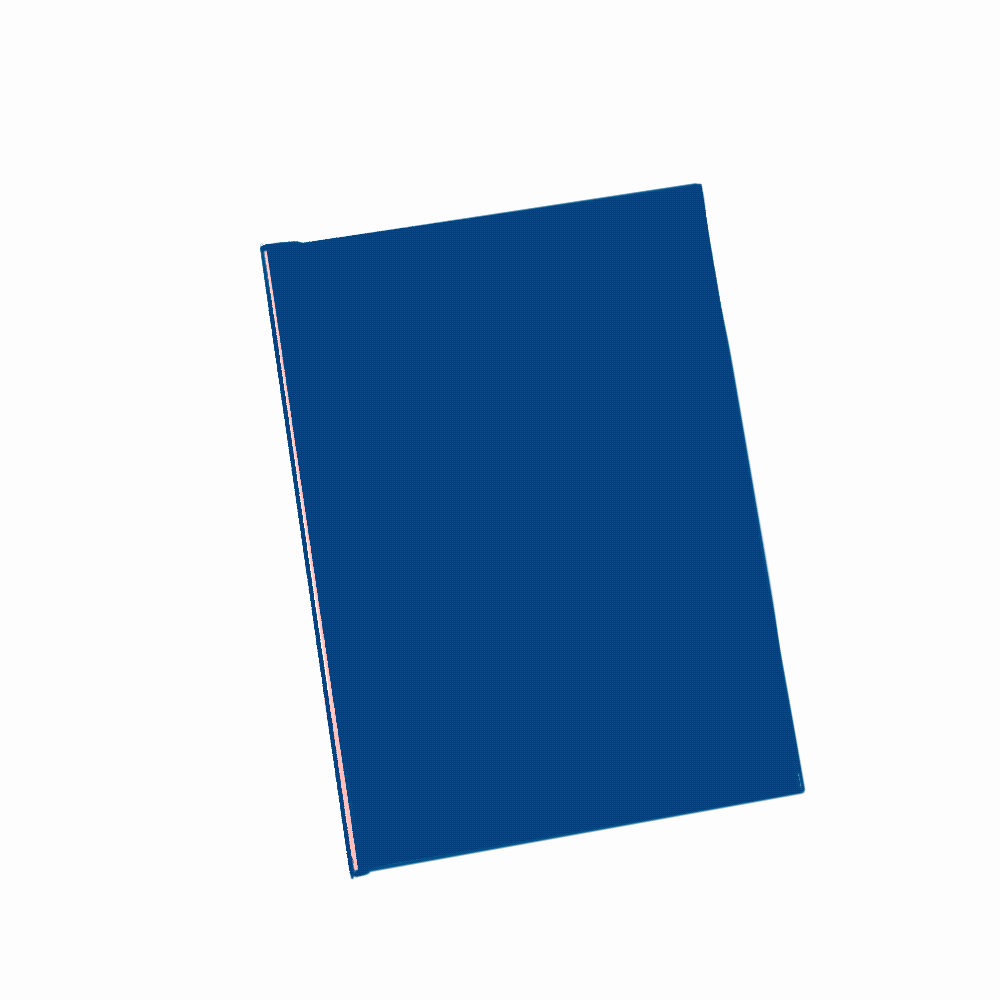Your anti #girlboss required readings
Your anti #girlboss required readings
By Ivana Vidakovic
By Ivana Vidakovic
If we’ve learned anything from the past couple of months, it’s that we need to get more educated.The books on this list were compiled to do many things for you, but none of them will encourage you to subscribe to a culture of burnout, hustling and catering to capitalism. This reading list is multi-faceted: there’s a little bit of fiction, a biography, and creative work here for you. The authors showcased are primarily Black, Indigenous, Queer and women of colour (WOC) whose revolutionary work deserves to be read by all of us.
This work is especially crucial because it functions as a confirmation that ignoring our need for rest, emotional well-being and intuitive living is often detrimental to our existence. Hustle culture, capitalism and “workaholism” are outdated concepts that have been pioneered by a system that benefits very few. As women we shouldn’t be looking to fit into this system to feel successful, but rather to build our own systems. As Audre Lorde proclaimed, “The master’s tools will never dismantle the master’s house”. So, here are some works recommended by women from the Ryerson community that are written by women, for women:
If we’ve learned anything from the past couple of months, it’s that we need to get more educated.The books on this list were compiled to do many things for you, but none of them will encourage you to subscribe to a culture of burnout, hustling and catering to capitalism. This reading list is multi-faceted: there’s a little bit of fiction, a biography, and creative work here for you. The authors showcased are primarily Black, Indigenous, Queer and women of colour (WOC) whose revolutionary work deserves to be read by all of us.
This work is especially crucial because it functions as a confirmation that ignoring our need for rest, emotional well-being and intuitive living is often detrimental to our existence. Hustle culture, capitalism and “workaholism” are outdated concepts that have been pioneered by a system that benefits very few. As women we shouldn’t be looking to fit into this system to feel successful, but rather to build our own systems. As Audre Lorde proclaimed, “The master’s tools will never dismantle the master’s house”. So, here are some works recommended by women from the Ryerson community that are written by women, for women:

Braiding Sweetgrass by Robin Wall Kimmerer
This book is both a biography and nature writing, however neither of these genre classifications can truly encapsulate Kimmerer’s ability to use nature as a tool to unpack our base fears and truths. Each chapter is a unique story from Kimmerer’s life about how nature taught her how to consume, work, love and grieve. Kimmerer, a Potawatomi woman, also investigates how her formal scientific training failed her by disregarding her Indigenous teachings as “non-academic” and therefore illegitimate to the study of plants. Her storytelling is an ode to the kind of sustainable living that isn’t corrupted by commercialism. It’s an extremely important book that exhibits reverence of the natural world and how important Indigenous knowledge is to changing systems of education and conservation.
American Woman by Susan Choi
For Shany Raisin, a fourth-year english literature student, this novel by Choi, an American woman born to a Korean father and a Jewish mother, stood out as extremely well-written. American Woman follows protagonist Jenny Shimada, a Japanese-American woman, as she guides and cares for three fugitives. The story, set in the 1970s, mimics that of the famous 1974 kidnapping of heiress Patty Hearst. Raisin recommends this novel as one that is particularly engaging and carries several nuances within it such as “an undercurrent of a queer love story.”
Untamed by Glennon Doyle
In Untamed, Doyle, an American writer and self-proclaimed “clinically-depressed motivational speaker,” approaches her life thus far as a series of events that shaped both her view of the world and herself. Throughout the book, she unpacks each of the life events that consequently left her in a perpetual state of shame and self-hatred. She does this in an attempt to showcase the process of unlearning that so many women must undertake in order to get to a place of radical self-acceptance. Doyle also speaks in detail, about the process of falling in love with a woman named Abby, who is now her wife, while still in a heterosexual marriage. This novel is a prime example of being brave enough to question all of the rules surrounding femininity and what it means to be a “good” wife, mother, daughter, and ultimately woman. It is a hard process, but as Doyle says in the novel, “We can do hard things.”
Heads of the Coloured People by Nafissa Thompson-Spires
Taelor Lewis, a fourth-year professional communication student, suggests this collection of short stories by Nafissa Thompson-Spires as an illuminating read. Each short story is a look into the vastly unique and nuanced lives of Black people which, for Taelor, comes as a refreshing change to how “oftentimes we see Black people as strong, funny or always sure of themselves, but it’s really important to see Black people are also vulnerable and don’t always have all the answers; it humanizes us.” These stories are often centered on the contemporary middle-class experience of Black folks, a lens that she finds is often overlooked. “I just really appreciated seeing different narratives in different frameworks for Black people,” said Taelor.
Feminist Theory: From Margin to Centre by Bell Hooks
Sesiny Samuels, a third-year film student, recommends this classic by Bell Hooks. “She covers intersectional feminism and common oppression in such a fascinating way, as well as talking about how the concept of ‘sisterhood’ in mainstream feminism is damaging towards WOC because their issues are often ignored,” says Sesiny. This book delves into more complex subjects and can be used as a catalyst to analyze why #Girlboss culture is often detrimental to the stories of WOC entrepreneurs who struggle with an entire host of other challenges that white women are privileged enough to avoid.
Braiding Sweetgrass by Robin Wall Kimmerer
This book is both a biography and nature writing, however neither of these genre classifications can truly encapsulate Kimmerer’s ability to use nature as a tool to unpack our base fears and truths. Each chapter is a unique story from Kimmerer’s life about how nature taught her how to consume, work, love and grieve. Kimmerer, a Potawatomi woman, also investigates how her formal scientific training failed her by disregarding her Indigenous teachings as “non-academic” and therefore illegitimate to the study of plants. Her storytelling is an ode to the kind of sustainable living that isn’t corrupted by commercialism. It’s an extremely important book that exhibits reverence of the natural world and how important Indigenous knowledge is to changing systems of education and conservation.
American Woman by Susan Choi
For Shany Raisin, a fourth-year english literature student, this novel by Choi, an American woman born to a Korean father and a Jewish mother, stood out as extremely well-written. American Woman follows protagonist Jenny Shimada, a Japanese-American woman, as she guides and cares for three fugitives. The story, set in the 1970s, mimics that of the famous 1974 kidnapping of heiress Patty Hearst. Raisin recommends this novel as one that is particularly engaging and carries several nuances within it such as “an undercurrent of a queer love story.”
Untamed by Glennon Doyle
In Untamed, Doyle, an American writer and self-proclaimed “clinically-depressed motivational speaker,” approaches her life thus far as a series of events that shaped both her view of the world and herself. Throughout the book, she unpacks each of the life events that consequently left her in a perpetual state of shame and self-hatred. She does this in an attempt to showcase the process of unlearning that so many women must undertake in order to get to a place of radical self-acceptance. Doyle also speaks in detail, about the process of falling in love with a woman named Abby, who is now her wife, while still in a heterosexual marriage. This novel is a prime example of being brave enough to question all of the rules surrounding femininity and what it means to be a “good” wife, mother, daughter, and ultimately woman. It is a hard process, but as Doyle says in the novel, “We can do hard things.”
Heads of the Coloured People by Nafissa Thompson-Spires
Taelor Lewis, a fourth-year professional communication student, suggests this collection of short stories by Nafissa Thompson-Spires as an illuminating read. Each short story is a look into the vastly unique and nuanced lives of Black people which, for Taelor, comes as a refreshing change to how “oftentimes we see Black people as strong, funny or always sure of themselves, but it’s really important to see Black people are also vulnerable and don’t always have all the answers; it humanizes us.” These stories are often centered on the contemporary middle-class experience of Black folks, a lens that she finds is often overlooked. “I just really appreciated seeing different narratives in different frameworks for Black people,” said Taelor.
Feminist Theory: From Margin to Centre by Bell Hooks
Sesiny Samuels, a third-year film student, recommends this classic by Bell Hooks. “She covers intersectional feminism and common oppression in such a fascinating way, as well as talking about how the concept of ‘sisterhood’ in mainstream feminism is damaging towards WOC because their issues are often ignored,” says Sesiny. This book delves into more complex subjects and can be used as a catalyst to analyze why #Girlboss culture is often detrimental to the stories of WOC entrepreneurs who struggle with an entire host of other challenges that white women are privileged enough to avoid.
 Eloquent Rage: A Black Feminist Discovers Her Superpower by Brittney Cooper
Eloquent Rage: A Black Feminist Discovers Her Superpower by Brittney Cooper
Fourth-year journalism student Odia Melissa Nyembo recommends this collection of essays by Brittney Cooper. Through her own personal stories, Cooper delves specifically into the role that rage and anger have played in her life as a Black woman. She addresses the myth of exceptionalism, that views smart, educated and poised Black people as a rarity, and breaks apart the stereotypes placed on Black women in relationships, work environments and media.
My Year Of Rest And Relaxation by Otessa Moshfegh
This fictional novel follows the life of an unnamed protagonist who possesses all of the privileges that would lead others to think she was happy. She is rich, beautiful, educated, works in a trendy art gallery and lives on the Upper East Side of Manhattan—not unlike the majority of current descriptions of “girl bosses” that populate mainstream media. Despite her “successes,” she feels a deep and enveloping unhappiness that prompts her to spend a year of her life in constant alienation and slumber with the help of a highly negligent psychiatrist who prescribes her a host of medication without question. This novel is dark, comical and a perfect example of the reality that exists beyond a person’s Instagram bio.
